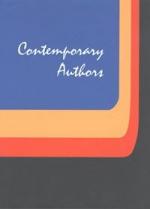|
This section contains 2,872 words (approx. 10 pages at 300 words per page) |

|
SOURCE: "Richard Wilbur's Critical Condition," in Contemporary Poetry: A Journal of Criticism, Vol. II, No. 2, Autumn 1977, pp. 16-24.
In the following essay, Woodard defends Wilbur's poetry against detractors who find his work "too happy."
Critical commentaries on Wilbur's poetry have come to seem rather highly stylized and predictable, like bullfighting. First there is the ritual praise of his technical virtuosity (music, diction, imagery, metrics), to show that the critic is not devoid of the appreciation of beauty, followed quickly by the disclaimers which establish his awareness of its irrelevance to contemporary life. Objections to Wilbur's poetry, to phrase them in the simplest terms, take the following forms: (1) He thinks too much. (2) He does not suffer enough.
Strictly speaking, it is not Wilbur's thought so much as his imagination that is derogated. Clearly we cannot condemn him for his epistemological interests if we are to permit them to Wallace...
|
This section contains 2,872 words (approx. 10 pages at 300 words per page) |

|


